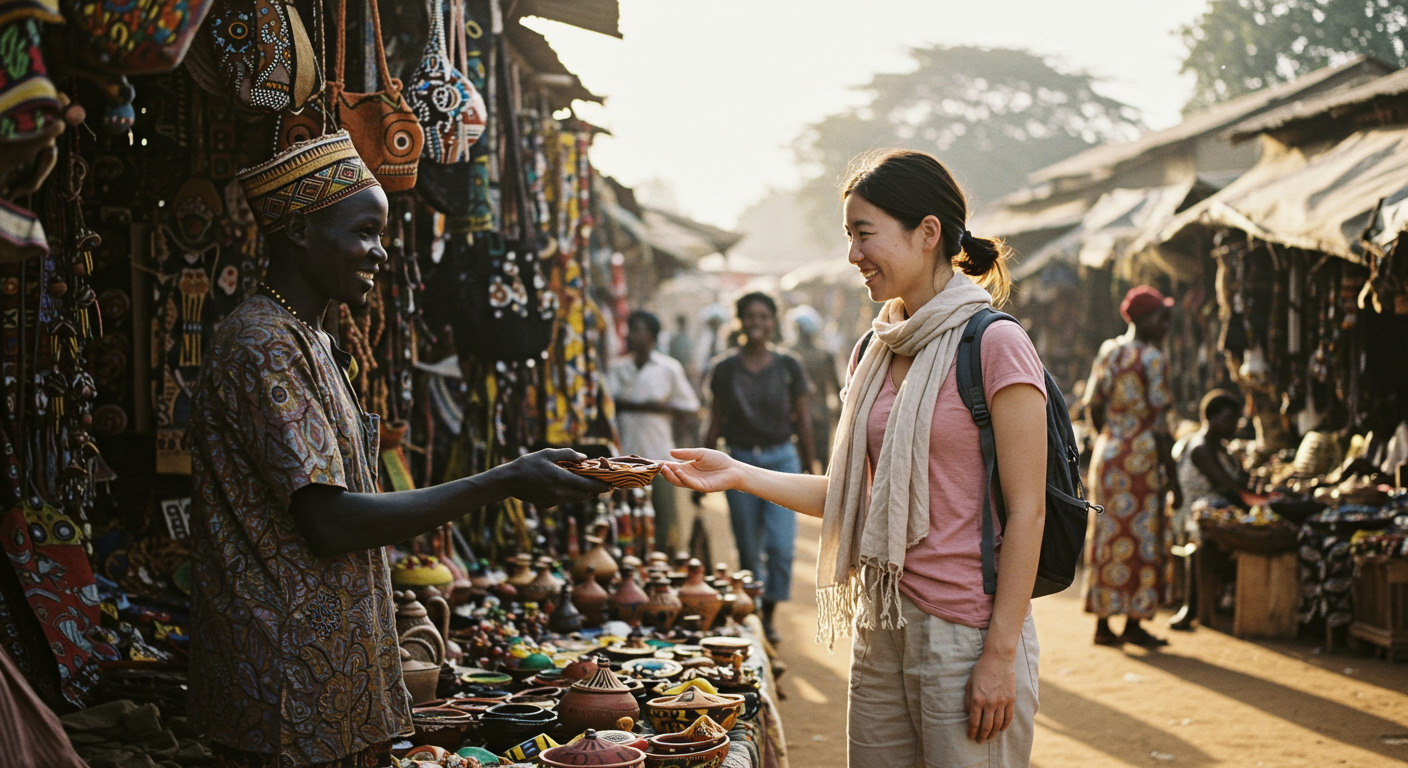Traveling solo through Africa can be one of the most rewarding and empowering experiences you’ll ever have. From the moment you set foot on the continent, you’re welcomed by vibrant cultures, breathtaking landscapes, and the kind of hospitality that stays with you for life. But, as with solo travel anywhere in the world, Africa comes with its own set of unique challenges and safety considerations.
Whether you’re backpacking through East Africa, road-tripping across Southern Africa, or exploring the markets of North and West Africa, this guide is here to help you navigate the continent safely and confidently—without missing out on its magic.
Why Travel Africa Solo?
While many still view Africa as a destination for group tours or volunteers, more solo travelers—especially women and members of the African diaspora—are embracing the journey for personal growth, cultural reconnection, and pure adventure.
Freedom to explore at your own pace
Greater opportunity to connect with locals
Tailored itineraries based on your interests
More flexibility with budgeting and travel style
Solo travel is possible and safe in Africa—as long as you're informed, prepared, and respectful of the culture.
Top Safety Tips for Solo Travelers in Africa
1. Research Before You Go
Every country in Africa is different. Urban Nairobi is nothing like rural Namibia; Lagos has a different pace from Kigali. Know what to expect in terms of language, transport, currency, health precautions, and social customs.
Read travel blogs, watch YouTube vlogs, and check recent reviews on platforms like TripAdvisor or Reddit.
Join Facebook groups like “Travel Africa Solo” or “Black Women Travel” for real-time advice.
2. Start in Travel-Friendly Countries
For first-timers, it’s wise to begin with countries known for solo traveler infrastructure and hospitality.
Top picks: Ghana, Kenya, Rwanda, South Africa, Morocco, Tanzania, Namibia.
These places generally have better transportation networks, budget lodging, and welcoming local communities.
3. Use Reputable Accommodation
Always book your first night in advance, especially if arriving at night. Hostels, eco-lodges, and guesthouses are great for meeting other travelers.
Use trusted platforms like Booking.com, Airbnb, or Hostelworld.
Look for places with 24-hour reception, good lighting, reviews mentioning safety, and proximity to essential services.
4. Stay Connected
Purchase a local SIM card with data or an eSIM to stay connected on the go.
Use WhatsApp to check in with friends or family, and consider sharing your location via Google Maps.
Avoid venturing into remote areas without internet access unless you’re part of a tour or have made clear plans.
5. Use Trusted Transport
For intercity travel, use reputable bus companies like Akamba (Kenya), Intercape (Southern Africa), or ABC Transport (West Africa).
For inner-city travel, use ride-hailing apps like Bolt or Uber where available—safer than flagging taxis off the street.
Always negotiate prices in advance for taxis or motorbikes where there’s no meter or app.
Solo Travel as a Woman in Africa
Solo female travelers often report feeling safer in Africa than they expected—though catcalling and unwanted attention can occur in some areas.
Dress modestly, especially in rural or religious communities.
Avoid walking alone at night. Ask your host or guide if an area is safe before venturing out.
Carry a scarf or wrap. Useful for covering your head, shoulders, or legs when entering sacred sites.
Be firm but polite. If someone is too persistent, a confident “No, thank you” usually works.
Some destinations, like Rwanda and Botswana, are known for being especially safe and clean for solo female travelers.
Health and Emergency Preparedness
Vaccinations: Yellow fever, hepatitis A and B, typhoid, and others may be required or recommended.
Malaria precautions: Use mosquito repellent, sleep under treated nets, and consider anti-malaria pills.
Travel insurance: Essential for health emergencies, lost luggage, and unexpected delays.
Embassy information: Keep your embassy’s contact and a list of emergency numbers.
Cultural Respect = Safety
Respecting local customs helps avoid misunderstandings and builds trust. This includes:
Learning a few greetings in the local language
Using your right hand when giving or receiving
Asking before taking photos of people
Avoiding political discussions in sensitive areas
Your attitude can make a huge difference. Politeness, patience, and humility go a long way in Africa.
Best Activities for Solo Travelers
Join a group safari or walking tour
Attend a cooking or drumming class
Explore art galleries and museums
Visit local markets (with a guide if needed)
Stay in eco-lodges or community-run guesthouses
You’ll often find locals and fellow travelers willing to help or strike up a conversation.
Final Word
Solo travel in Africa doesn’t have to be daunting—it can be deeply rewarding, transformative, and even healing. With the right preparation, a curious spirit, and respect for local ways of life, you'll not only stay safe—you’ll thrive. Whether you’re seeking connection, peace, or perspective, the continent has a way of offering exactly what your soul needs.



